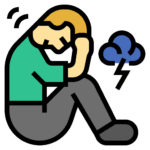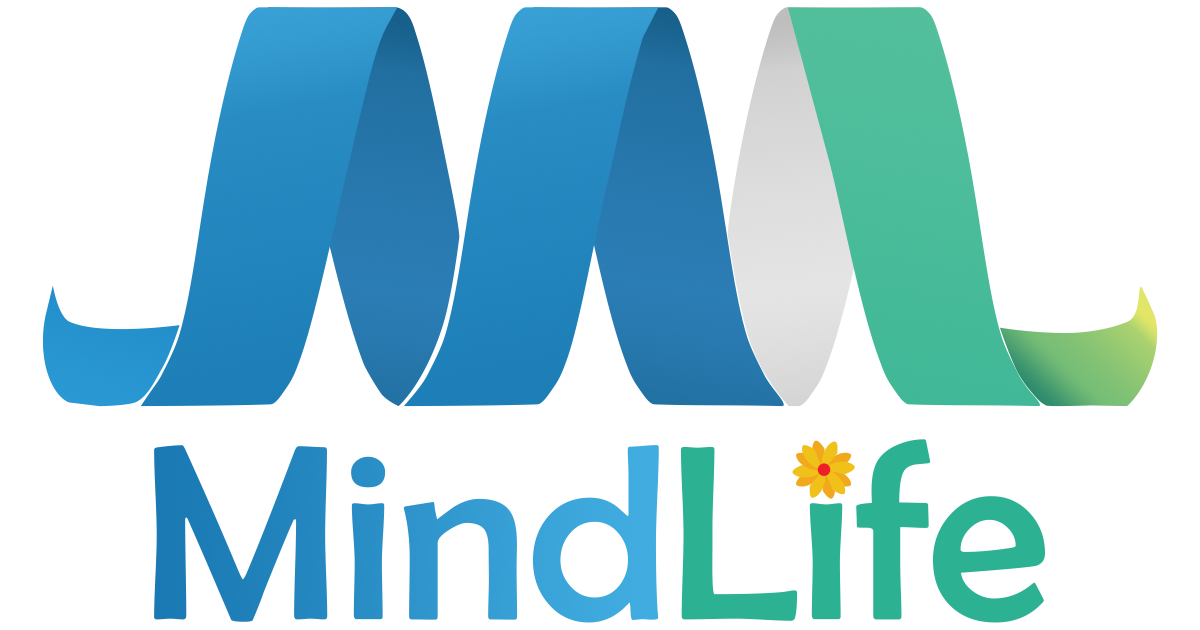Understanding the Global Scope of Mental Health Challenges
Common mental health disorders encompass a wide spectrum, ranging from mild to severe, including conditions like anxiety, depression, and stress-related disorders. The impact of these disorders extends beyond the individual, affecting aspects of work, education, and personal relationships. While certain severe cases require psychiatric intervention, it’s important to recognize that the vast majority of individuals suffering with common mental health issues don’t require such treatment. MindLife is focusing on the millions who suffer from common mental health issues and don’t receive effective treatment. Our solutions combine the best psychotherapy science with cutting-edge technology, and when needed, incorporate support by skilled and compassionate therapists.
A Global Problem
Quantifying the worldwide impact of mental health is a challenge as so many millions suffer globally, in so many countries. In many of these countries people suffering from mental health problems continue to feel stigmatised, misunderstood and unsupported. Given that an estimated one in four individuals suffer from common mental health disorder in each country, this represents an extraordinary amount of human suffering. MindLife’s focus is on the most common mental health disorders impacting the lives of the largest numbers of people. These include depression and the many different types of anxiety (including Generalised Anxiety Disorder (GAD), Social Anxiety Disorder (SAD), Obsessive Compulsive Disorder (OCD), and Post-Traumatic Stress Disorder (PTSD)).
Stress-related ailments like burnout and exam-related stress also contribute to the complex web of mental health challenges, and are a further area of focus for us.
We are also dedicated to creating solutions for mind-body conditions, such as Disorders of Gut-Brain Interaction (DGBI), which are often stress-related.
Debilitating disorders

Depression
Depression is a major global health problem, affecting the lives of millions and societies as a whole.
Depression is more than feeling unhappy or fed up from time to time. It’s a serious medical condition that causes feelings of sadness and loss of interest in activities that you usually enjoy. When you’re depressed, you feel persistently sad for weeks or months rather than just a few days.
Depression can lead to physical problems, too. It can make you feel exhausted and make it hard to concentrate on things or make decisions. There are different types of depression, and it’s essential to seek professional help if you think you might be depressed.
Current depression diagnosis is relatively rudimentary, resulting in a heterogeneous group of patients with the same diagnosis. Notably, available psychological treatments are effective on average, but it’s unclear mainly which treatment works best for whom.

Anxiety
Anxiety is a normal emotion we all experience at once or another. It is the feeling of worry, fear, or unease. We may feel anxious when faced with a problem at work, before taking a test, or when making an important decision.
Anxiety is a normal response to a potentially stressful situation and can be beneficial in some situations. It can motivate us to take action and help us to stay alert and focused. However, when anxiety becomes excessive, it can interfere with our daily lives.
Anxiety disorders are the most common mental health disorders in the United States. An estimated 30 million adults suffer from an anxiety disorder in any given year. Many types of anxiety disorders exist, including generalised anxiety disorder, panic disorder, social anxiety disorder, and specific phobias. Symptoms of anxiety disorders can include feeling restless, tense, or nervous; having a hard time concentrating; feeling like your mind is going blank, and having a hard time sleeping. If you are experiencing anxiety symptoms, you must talk to your doctor or mental health professional.
Anxiety is diagnosed similarly to depression and may result in psychological treatments that are effective for some and not effective for others.
For both anxiety and depression, clinicians have pharmacological options available, which may treat the symptoms of these mental health conditions but do not address the underlying causes or effect a cure.

Mind-Body Conditions with Medically Unexplained Symptoms
Mind-body conditions are a group of conditions that involve both the mind and body. While there has been a great deal of advancement in understanding mind-body interactions over recent years, some conditions have medically unexplained symptoms. These include chronic pain disorder (fibromyalgia), chronic fatigue syndrome (myalgic encephalomyelitis), and Disorders of Gut-Brain Interactions (DGBI), which includes irritable bowel syndrome (IBS). These conditions often have overlapping symptoms, making them difficult to diagnose.
While the exact cause of mind-body conditions is unknown, research suggests that they are likely due to a combination of factors, including genetic predisposition, psychological stress, and physical trauma.
Mind-body conditions can be debilitating and significantly impact a person’s quality of life. Treatment for these conditions typically focuses on symptom management and may include lifestyle changes, psychological therapy, and medication.
MindLife’s Approach Towards Mental Health: Harmonising Universality and Individuality
MindLife distinguishes itself in the field of digital mental health through its commitment to harmonising universality (i.e. the development of scalable solutions that can benefit many millions of people) and individuality (i.e. tailoring such solutions to the unique needs of individual users). Our current project of developing UpLift Your Life – an enhanced version of the Unified Protocol that can be offered as an online group psychotherapy programme, with a personalised digital app for each user to use between sessions – is a demonstration of this commitment.
The Unified Protocol stands out for its versatility and effectiveness in treating a wide range of emotional disorders. Its strength lies in its transdiagnostic approach, which means it can address common mental health conditions under a single therapeutic framework. This not only simplifies treatment planning and implementation but also allows for a more efficient and tailored approach to individual needs.
The protocol emphasises teaching clients a set of common skills and strategies to manage their emotional experiences, making it a highly adaptable and cost-effective solution. Its evidence-based nature, supported by extensive research, further underscores its credibility and success in helping individuals regain control over their emotional well-being. In UpLift Your Life MindLife is enhancing the Unified Protocol by incorporating personalised recommendations and a personalised digital app into a ten session online group psychotherapy programme based on the Unified Protocol.
How MindLife is enhancing the Unified Protocol in UpLift Your Life
UpLift Your Life’s Unified Protocol-based group psychotherapy programme will be enhanced with a personalised app that empowers users to continue their learning and practice in between therapy sessions. In addition, our AI algorithm harnesses insights gleaned from the experiences of thousands who have undergone therapy, enabling us to provide customised education, interventions, explanations, and skill-building exercises that directly address each patient’s unique needs.
Moreover, by utilising our StratCare and MatchNeeds algorithm, we can assemble patient groups in a manner that ensures the information and guidance offered are precisely tailored to each member’s requirements. For example, in the case of individuals struggling with Post-Traumatic Stress Disorder (PTSD), UpLift Your Life will incorporate a dedicated module within the app to guide and train them in overcoming PTSD. Furthermore, we will also explore the possibility of identifying patients with specific conditions such as PTSD and coordinate remote group therapy sessions to provide additional support to these individuals.
Picture it as a unique path within a universal map. The Unified Protocol lays out the fundamental routes, ensuring a common starting point for everyone’s journey. Yet, individual preferences, interests, and destinations are factored in when charting each person’s distinct route. In a similar vein, the Unified Protocol provides a solid foundation for effective treatment, while personalised recommendations tailor the approach according to an individual’s responses, progress, and specific challenges.
In essence, our reliance on the Unified Protocol doesn’t negate our commitment to personalisation. Instead, these two pillars of our approach complement and amplify each other. The Unified Protocol sets the stage for efficient and evidence-based care, while personalised recommendations embrace the nuances that make each individual’s journey distinctive. This fusion is where innovation meets empathy, where the collective power of a universal framework enhances the deeply personal quest for well-being.
Economical Advantages of a Unified Approach
In the landscape of mental health care, the Unified Protocol’s effective and cost-effective nature stands out. While diverse mental health conditions often necessitate distinct treatments, placing a significant training burden upon healthcare providers, the Unified Protocol offers an efficient and effective alternative. Its versatile framework addresses a broad spectrum of emotional disorders within a single protocol, optimising the utilisation of resources and minimising the need for specialised interventions for each condition. This streamlined approach not only expedites treatment delivery but also offers potential cost savings, ensuring accessibility to mental health care without compromising quality.
Join Forces with MindLife to Redefine Mental Health Care
Join us in redefining mental health care, where challenges transform into opportunities for positive change. Explore how MindLife stands at the forefront of this transformative journey, committed to crafting solutions that empower individuals, therapists, and communities. Together, let’s embrace these challenges and forge a brighter future for mental health care.

